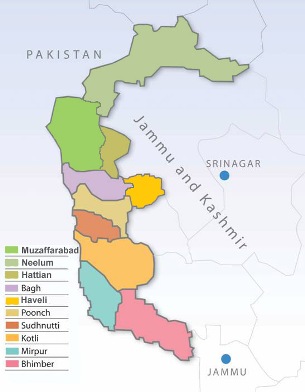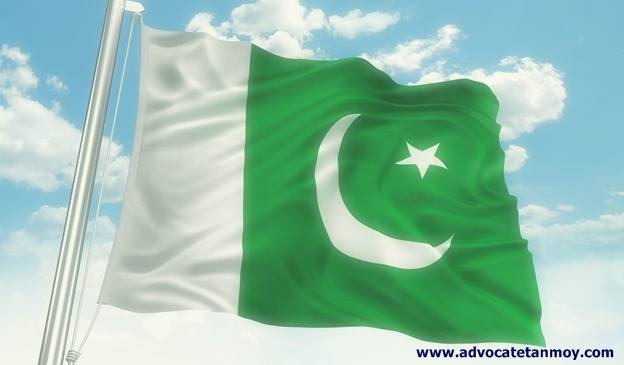
In 1970 the system of adult franchise was adopted and a democraticDemocracy It is commonly understood as being a political system of majority rule. The evolution of democratic tradition can be traced back to the Magna Carta (1215) and through the long struggle for Parliamentary supremacy which culminated in the English Bill of Rights of 1689, the emergence of representative political institutions in the colonial era, the development of responsible government in the 19th century. In institutional terms, democracy means that each of the provincial legislatures and the federal Parliament is elected by popular vote. These legislatures, are "at the core of the system of representative government". It is a 'power' word. Power rests with the ordinary Citizens. Only educated people understand power. A corrupt or controlled court system can cover failure of it. The religious concept is incompatible with it. Promise to spend more from the public treasury moves to Dictatorship. setup was introduced in Azad Jammu and Kashmir through Azad Jammu and Kashmir Act, 1970. For the first timeTime Where any expression of it occurs in any Rules, or any judgment, order or direction, and whenever the doing or not doing of anything at a certain time of the day or night or during a certain part of the day or night has an effect in law, that time is, unless it is otherwise specifically stated, held to be standard time as used in a particular country or state. (In Physics, time and Space never exist actually-“quantum entanglement”), the Legislative Assembly, as well as President of Azad Jammu and Kashmir, were also elected on the basis of adult franchise by the people of Azad Jammu and Kashmir, and the refugees of Jammu and Kashmir settled in Pakistan.The presidential system of government worked for about 4 years when, in 1974, the parliamentary system was introduced in AJ&K under the AJ&K interim ConstitutionConstitution The Constitution encompasses the global system of rules governing constitutional authority. Simply reading selected provisions of the written text may be misleading. Understanding the underlying principles, such as federalism, democracy, constitutionalism, the rule of law, and respect for minorities, is crucial. Democratic institutions must allow for ongoing discussion and evolution, reflected in the right of participants to initiate constitutional change. This right entails a reciprocal duty to engage in discussions. Democracy involves more than majority rule, existing within the context of other constitutional values. Therefore, a profound understanding of these principles informs our appreciation of constitutional rights and obligations. Read more Act, 1974, which has undergone about 13 amendments so far. Earlier in 1974, the Assembly consisted of 40 members, elected on the basis of adult franchise and two co-opted lady members, whereas the Assembly now consists of 41 elected Members and 8 co-opted members of which 5 are ladies, Since 1975, the Prime Minister has been elected by the members of legislative Assembly. He is the Chief Executive of the State, whereas the President is the constitutional head under the Interim Constitution Act 1974. Besides Executive and the Legislature, AJammu and Kashmir have an independent JudiciaryJudiciary The modern justice system has its roots in Henry II's reign, where the assize system and common law were established. Professional judges and magistrates started to emerge in the 13th century, gradually increasing their independence. However, they faced challenges, including political involvement and potential influence by the sovereign. Changes to the judiciary system, such as the establishment of the Court of Chancery in 1830 and the Judicature Act in 1873, merged common law and equity, leading to the creation of the High Court, Court of Appeal, and Crown Court. Despite this evolution, the judiciary's full independence was not officially recognized until the Constitutional Reform Act in 2005. as well. The Supreme CourtSupreme Court The Court of last resort. Supreme Court of India (26/01/1950), Supreme Court of USA (1798), Supreme Court of UK (1/10/2009), Supreme Court of Canada (1949), International Court of Justice (22/05/1947), > Supreme Court Network, High CourtHigh Court High Court Judges in England and Wales handle complex and tough cases, sitting in London and traveling to court centers around the country. They preside over serious criminal and important civil cases, and support the Lord and Lady Justices in hearing appeals. High Court Judges are commonly referred to as ‘Mr/Mrs/Ms Justice surname’ and are given the prefix ‘The Honourable’. They are assigned to the King’s Bench Division, the Family Division, or the Chancery Division. The King’s Bench Division focuses on civil wrongs and judicial review, the Family Division deals with family law, and the Chancery Division handles various cases including company law and probate. Judges are appointed through a rigorous process overseen by the Judicial Appointments Commission. and sub- ordinate courts are present, in addition to many other Courts, established under various laws. The pattern of the State of Azad Jammu and Kashmir is almost the same which is prevailing in Pakistan with the exception that in Azad Jammu and Kashmir there exists a Council with Prime Minister of Pakistan as the Chairman, 6 elected members, 3 ex-officio Members including President AJK (Vice- Chairman of the Council), Prime Minister of AJK or his nominee, Federal Minister for Kashmir Affairs, and 5 Members to be nominated by the Prime Minister of Pakistan from amongst the Federal Ministers and Members of the Parliament. Islam is the State religionReligion ‘The word ‘Religion’ -Re Legion- A group or Collection or a brigade, is a social-cultural construction and Substantially doesn’t exist. Catholic religion is different from Protestant religion. It is not Dharma. of Azad Jammu and Kashmir.
Development
The PML-N dominated joint sitting of the Azad Jammu and Kashmir Legislative Assembly and the AJK Council on Friday June 01, 2018 approved amendments to the AJK Constitution abolishing the council’s administrative and financial powers and reducing it to an advisory body. The process had started when the 13th constitutional amendment bill was tabled by the government in the Legislative Assembly amid objections by the opposition that under section 33 of AJK’s interim constitution, no amendment could be made in sections 31, 33 and 56 without the prior approval of the government of Pakistan.
IndiaIndia Bharat Varsha (Jambu Dvipa) is the name of this land mass. The people of this land are Sanatan Dharmin and they always defeated invaders. Indra (10000 yrs) was the oldest deified King of this land. Manu's jurisprudence enlitened this land. Vedas have been the civilizational literature of this land. Guiding principles of this land are : सत्यं वद । धर्मं चर । स्वाध्यायान्मा प्रमदः । Read more on Monday 11 June 2018 lodged a strong protest with Islamabad over any “action to alter the status” of territories illegally occupied by Pakistan in Jammu and Kashmir and asked it to vacate all such areas. It was reacting to the changes to the Azad Jammu and Kashmir Interim Constitution (13th Amendment) Act, 2018, which abolished the AJK Councils’s administrative and financial powers, reducing it to an advisory body.
It was clearly conveyed that the entire state of Jammu and Kashmir, which also includes the “so-called Azad Jammu and Kashmir” is an integral part of India by virtue of its accession in 1947, the Ministry of External Affairs (MEA) said. “Any action to alter the status of any part of the territory under forcible and illegal occupation of Pakistan has no legal basis whatsoever, and is completely unacceptable. Instead of seeking to alter the status of the occupied territories, Pakistan should immediately vacate all areas under its illegal occupation”.
Pakistan MuslimMuslim A community gathered around Muhammad (d. 632 CE) and confessed that Muhammad was the last of Prophets and he received Quran through Zibreel Farista from Allah. Hadith of Sahih Bukhari faithfully recorded the commands of Muhammad. He acknowledged the contribution of Jesus to the Abrahamic Religion. League-Nawaz (PML-N) government had introduced the 13th amendment in the interim constitution of AJK on May 31, 2018.
Status: Azad Jammu and Kashmir is the only administrative unit in Pakistan, which has its own Supreme Court.
Read the Interim Constitution
Azad Jammu & Kashmir Interim Constitution Act 1974
